Read
- Home
- Read
Subscribe to Ivo's academic accounts and stay up to date with his research
Authored Book

The Branding Boardroom: Deep Conversations with Global Thought Leaders
Published 2025. Available online from Amazon, the official website of The Branding Boardroom and ResearchGate.
Description: Successful branding is more than just a logo or a catchy slogan—it’s about creating lasting emotional connections that foster trust, loyalty, and long-term success. In The Branding Boardroom, Dr. Ivo Ganchev presents compelling interviews with five globally renowned branding experts: Martin Roll, Sophie Bowman, Dennis Yu, Prof. Oliver Errichiello, and Dr. Francesca Hansstein. Each shares their unique perspectives on navigating the complex world of branding, from harnessing the power of social media influencers to using data-driven strategies to build consumer loyalty. These conversations explore the art and science behind successful branding in a global marketplace, offering practical strategies that blend innovation with timeless principles. With insights on adapting to local cultures, leveraging data, and building authentic connections, this book serves as a vital guide for business leaders, branding professionals, and anyone looking to elevate their brand to the next level.
Research Article

Trump’s New Foreign Policy: Strategic Repositioning in a Multipolar World?
Published 2025. Available online from the Centre for Regional Integration and ResearchGate.
Abstract: In this paper, Dr. Ivo Ganchev builds on a lecture delivered in Mexico City to examine the strategic repositioning of U.S. foreign policy during the first 50 days of Donald Trump’s second term within the context of a shifting global order. While the U.S. remains the world’s most powerful actor, its role is evolving in response to China’s rise, the growing influence of middle powers, and structural changes in international politics. This paper explores how Trump’s approach prioritizes selective engagement, with a renewed focus on the Western hemisphere, alongside a relative shift away from Europe. It also contrasts U.S. and Chinese foreign policy strategies, highlighting China’s non-interventionist appeal to the Global South and its relatively predictable and stable foreign policy and international engagement strategy. The analysis considers whether Trump’s foreign policy represents a deliberate strategic shift or a reaction to global trends, ultimately arguing that the U.S. is adapting to multipolarity through a mix of economic, military, and diplomatic recalibrations.
Research Article

China and the BRI Ten Years on: Geopolitics and Development
Published 2024. Available online from the Centre for Regional Integration and ResearchGate.
Abstract: In this article, Dr. Ivo Ganchev builds on his interview with Martin Zubko on the IR thinker podcast, exploring the Belt and Road Initiative (BRI) a decade after its launch within the wider context of China’s growing global ambitions. Initially launched as China’s flagship infrastructure project, the BRI has become part of a larger strategic framework alongside the Global Development Initiative (GDI), Global Security Initiative (GSI), and Global Civilization Initiative (GCI). These initiatives signal China’s shift toward a more comprehensive global leadership role, encompassing economic development, security, and cultural diplomacy. Drawing on Dr. Ganchev’s research expertise and practical experience, this article examines the BRI’s geopolitical significance, its economic impact, and challenges such as debt sustainability and transparency. It also investigates how the BRI intersects with other global initiatives like the EU’s Global Gateway and multilateral platforms such as BRICS and the Shanghai Cooperation Organization (SCO). This article argues that despite financial challenges, the BRI remains a foundational element of China’s evolving global strategy, shedding light on China’s role in shaping global governance.
Edited Book

Lessons from Regional Responses to Security, Health and Environmental Challenges in Latin America
Published 2024. Available online from Vernon Press and Amazon.
Description: What is the role of regional organizations in maintaining security across different parts of Latin America and the Caribbean (LAC)? How did COVID-19 impact states in the region and what types of collective action have helped respond to public health emergencies? In what way is LAC environmental policy formulated and what broader lessons can be drawn for the Global South? This edited volume addresses these questions, revealing the reasons behind the successes and failures of LAC regional responses to collective challenges as well as their limitations and potential for future improvement. It contains 11 chapters, authored by 16 authoritative academics who employ methodologically-diverse perspectives. Each chapter provides insights that would be of interest to scholars, students and policy-makers working on the regional governance of LAC and the Global South. The contributions are thematically organised in three parts and produced with pragmatic considerations in mind, discussing existing and potential real solutions to pressing issues.
Book Chapter

Responses of Latin American Organizations to Coup Attempts: Power Play between Political Ideologies in Post-hegemonic Regionalism
Published 2024. Available online from Vernon Press and Amazon.
Abstract: This chapter analyses the responses of regional organizations to coup attempts in Latin America during the rise, peak, and decline of post-hegemonic regionalism. Non-democratic challenges to power are frequent in the region and have widespread implications for government legitimacy, which makes responses to them a key element of security policy. The cases examined in this chapter include both successful and unsuccessful coup attempts, such as those of Bolivia (2008), Honduras (2009), Ecuador (2010), Paraguay (2012), Brazil (2016), and Venezuela (2019). The chapter argues that Latin American organizations were moderately successful in their proactive efforts to counter-balance both direct and indirect US interests and influence in Latin American regional security. The discussion compares responses to coups by various organizations such as the OAS, UNASUR, MERCOSUR, ALBA, CELAC, CARICOM, SICA, and PROSUR, as well as the positions of the Lima Group and the Montevideo Mechanism on the Venezuelan crisis.
Book Chapter
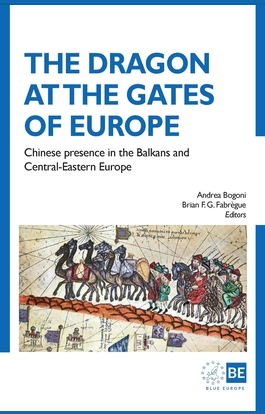
Making the Case for a New Coherent Bulgarian Strategy towards China: A Practitioner’s Analysis of Bilateral Political and Economic Relations (2015-2022)
Published 2023. Available online from Blue Europe.
Abstract: This chapter analyzes the bilateral relations between Bulgaria and China from 2015 to 2022, focusing on political, trade and business (including investment) dimensions. The analysis of political relations begins by examining high-level dialogue, which has produced limited outcomes; a further discussion explores diplomatic relations between two countries and the activities of their respective embassies. The analysis of trade relations indicates that the most significant overall trends are a growing trade deficit for Bulgaria and an asymmetric product mix, which is characterized by stark contrast between Bulgarian primary sector exports and Chinese secondary sector exports. The analysis of business relations reveals that engagement between Bulgarian and Chinese companies has been sporadic and on a relatively small scale; several cases of relevant companies are explored briefly. Overall, the chapter reveals that the lack of coherence and strategy in the way that Bulgaria approaches its relations with China results in missed opportunities and unfavorable outcomes. It argues that Bulgaria needs to design and implement a national strategy for bilateral engagement with China, based on a clear vision, realistic goals, and coordinated actions. Finally, the chapter provides ten specific recommendations for the Bulgarian government.
Book Chapter

Призив за нова съгласувана българска стратегия спрямо Китай: Практикоприложен анализ на двустранните политически и икономически отношения (2015-2022)
Published 2023. Превод на български от автора е достъпен в ResearchGate.
Abstract (Translated to Bulgarian): Тази глава анализира двустранните отношения между България и Китай от 2015 до 2022 г., като се фокусира върху политическите, търговските и бизнес (включително инвестиционните) измерения. Анализът на политическите отношения започва с изследване на диалога на високо ниво, който е довел до ограничени резултати; по-нататъшното изложение разглежда дипломатическите отношения между двете страни и дейността на съответните им посолства. Анализът на търговските отношения показва, че най-значимите общи тенденции са нарастващ търговски дефицит за България и асиметричен продуктов микс, който се характеризира с рязък контраст между българския износ на първичния сектор и китайския износ на вторичния сектор. Анализът на бизнес отношенията разкрива, че ангажираността между български и китайски фирми е спорадична и в сравнително малък мащаб; изследвани са накратко няколко казуса на съответните компании. Като цяло, главата разкрива, че липсата на съгласуваност и стратегия в начина, по който България подхожда към отношенията си с Китай, води до пропуснати възможности и неблагоприятни резултати. В нея се твърди, че България трябва да разработи и приложи национална стратегия за двустранно сътрудничество с Китай, основана на ясна визия, реалистични цели и координирани действия. И накрая, в главата са дадени десет конкретни препоръки към българското правителство.
Opinion Article
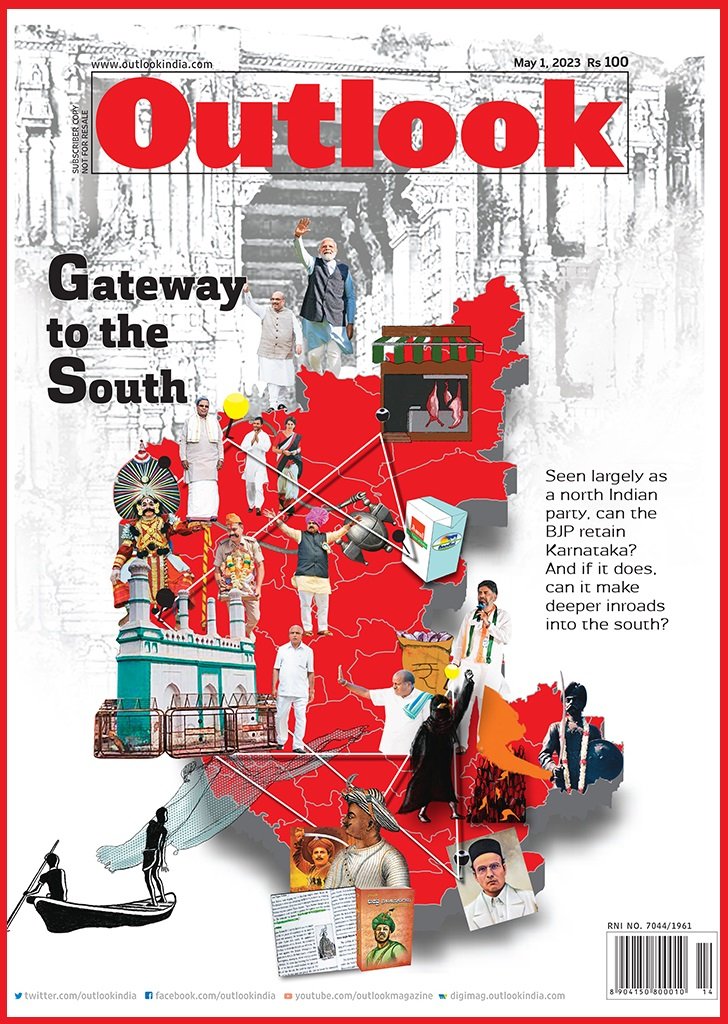
Improved Logistics, New Physical Products And AI Integration Needed To Drive Next Gen Startup Growth
Published 2023. Available online from Outlook.
Summary: Since 2022, Indian startups have been facing a “funding winter” as part of a global market correction in tech. Western startups with global ambitions such as Revolut and Stripe recently saw their perceived value drop by USD $18 and $28 billion, respectively. This mood change will inevitably continue to impact India, where most prominent startups rose as competitors to global tech companies. At their core, the services and business models of Swiggy, Flipkart, PayTM and Ola are fundamentally similar to those of Deliveroo, Amazon, N26 and Uber. This is unsurprising as over the past decade, the rise of tech startups around the world was dominated by digital platforms, which create new regulated marketplaces. However, this growth stage is over as the physical delivery of products and services now has to catch up with that of ordering them. This article argues the “rise of tech” is undergoing a radical transformation which India should embrace to further fuel its growth.
Co-edited Book
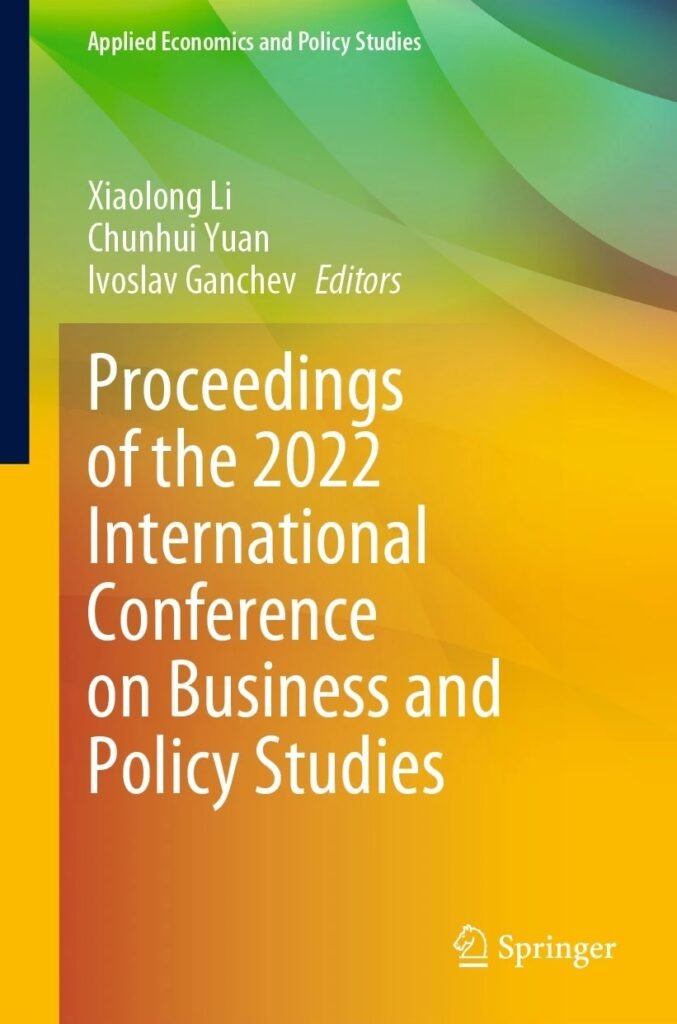
Proceedings of the 2022 International Conference on Business and Policy Studies
Published 2022. Available online from Springer.
Description: This proceedings volume contains papers accepted by the 2022 International Conference on Business and Policy Studies (CONF-BPS 2022), which are carefully selected and reviewed by professional reviewers from corresponding research fields and the editorial team of the conference. This volume presents latest research achievements, inspirations, and applications in applied economy, finance, enterprise management, public administration, and policy studies. CONF-BPS hopes this volume could be inspiring and of academic value.Business and policy studies both are heated research topics and are related to multiple fields. Held by Eliwise Academy, CONF-BPS aims at bringing together intellectuals from related fields including applied economy, finance, and public administration for academic exchange. Its goal is to serve as an international platform for researchers to present latest research progress, share ideas and inspirations, and exchange experience. Through more academic communication and exchange, this conference hops to promote international corporation and joint initiatives in relevant fields. This volume will be of interest to researchers, academics, professionals, and policy makers in the field of business, economics, management, and policy studies.
Research Article

A Reflexive Critique of Inter-paradigm Divisions in International Relations Theory: On Anarchy, Hierarchy and Pre-1919 Theory
Published 2022 in International Studies. Available online from SAGE.
Abstract: This article begins by re-opening the Third Great Debate which established division lines between mainstream (realist/liberal/constructivist) and Critical (neo-Marxist/neo-Gramscian) theories of International Relations based on their different assumptions about the nature of the international system: anarchy and hierarchy, respectively. The first half of the article argues that adopting common definitions of these concepts makes the anarchy–hierarchy debate theoretically irresolvable and further demonstrates that mainstream and Critical theories do not share an understanding of these terms neither between, nor within, their own traditions. The second half of this article challenges and aims to correct the interpretation of three key political thinkers, Halford J. Mackinder, W. E. B. DuBois and Norman Angell as appropriated within the inter-paradigm debates of International Relations. It argues that the respective associations of these thinkers with early realism, critical theories and early liberalism are intellectually misguiding because their works exhibit a common understanding of the ‘international’ across macro- and micro-dimensions, which is uncharacteristic of ‘-isms’. This shows that popular interpretations of pre-1919 works through post-1919 paradigms can obscure more than they reveal. These findings do not seek to present new ideas but to produce a reflexive critique of IR which illuminates some, perhaps unintended, counter-productive systemic effects that inter-paradigm divisions can have on the discipline.
Research Article
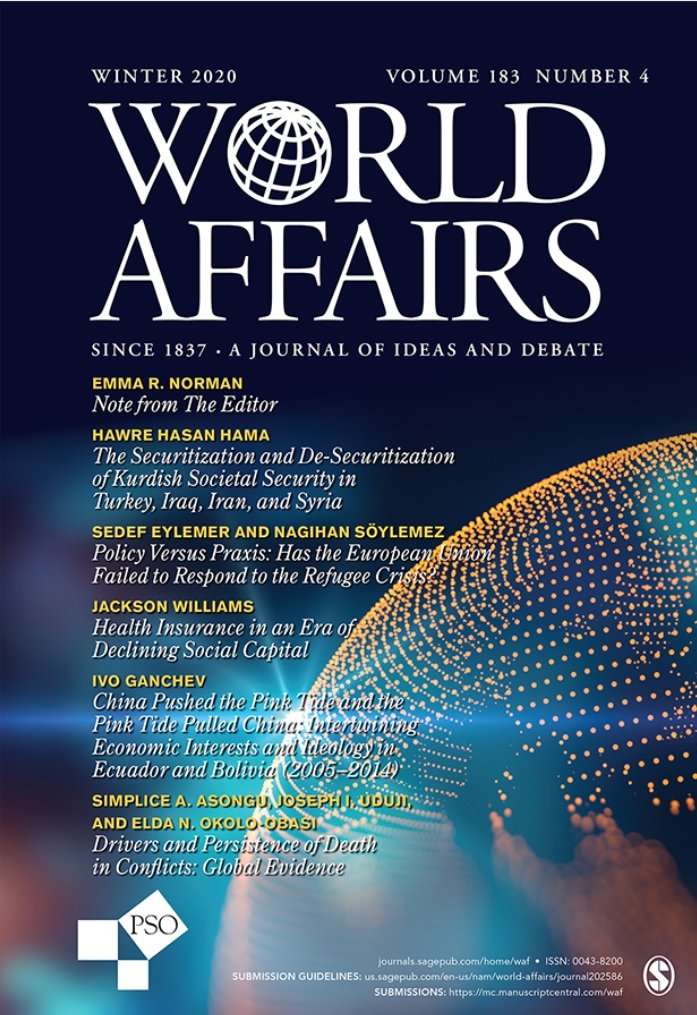
China Pushed the Pink Tide and the Pink Tide Pulled China: Intertwining Economic Interests and Ideology in Ecuador and Bolivia (2005-2014)
Published 2020 in World Affairs. Available online from SAGE.
Abstract: This article examines the rise of leftist ideology in Ecuador and Bolivia in light of their deepening economic relations with China from 2005 to 2014. First, it reveals that market trends account for trade fluctuations but fail to explain Chinese investment in, and some loan deals with Ecuador, as well as loans to Bolivia. Second, it demonstrates how these forms of funding provided alternatives to US-led international institutions, enabling Rafael Correa and Evo Morales to steer away from Western influence. Third, it contends that four factors led to a cyclic reinforcement of Chinese economic interests and the rise of leftist ideology in Ecuador and Bolivia, namely: mutual complementarity between China’s demand for energy / natural resource supply diversification and Pink Tide development agendas; US-China geopolitical competition for influence in Latin America; China’s experience in engaging with leftist governments from developing countries; and anti-Americanism shaping national identity in Ecuador and Bolivia.
Opinion Article

China-EU Cooperation Set for Qualitative Adjustments after COVID-19
Published 2020 by China Plus. Available online from China Plus.
Summary: During their 45-year history, China-EU relations progressed remarkably in quantitative terms but now, they require deeper political coordination to amplify the ripples of economic forces. Sustaining China-EU cooperation will be ever so important for the world’s economic recovery after COVID-19 as the two sides account for one-third of global GDP and conduct bilateral trade of over €1 billion per day. As demonstrated during the COVID-19 pandemic, China and Europe grow stronger together when they stand against natural forces that threaten the future of humanity and the planet. Containing pandemics and tackling climate change are global challenges that require a commitment to the universal value of protecting human life – which China and the EU already share. Cooperating on these issues is thus a rare but precious opportunity for China and Europe to align in terms of shared values as well as political and economic interests. If managed correctly, a strong China-EU relationship can improve the global standing of both parties. The quantitative fundamentals are present, now it is time to make qualitative adjustments after COVID-19.
Research Article
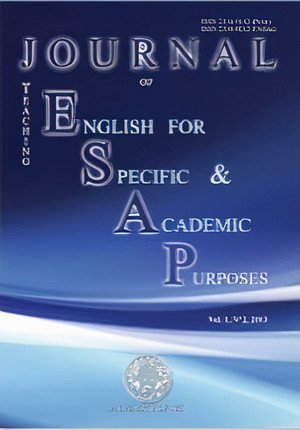
Top-Down or Bottom-up? Employing a Middle-ground Approach in Designing a UK Academic Writing Course For Advanced Chinese Graduates
Published 2020 in JTESAP. Available online from the University of Niš.
Abstract: This article documents the academic writing course design process for advanced Chinese learners aiming to pursue postgraduate degrees in business-related fields at their respective target universities in the UK. It incorporates two sets of principles, a top-down and a bottom-up perspective. The former is framed within an understanding of EAP as academic, rather than language training. The latter is based on needs analysis of student-specific weaknesses explored through a questionnaire, a diagnostic test and in-class observations. This article reveals the challenges faced by EAP practitioners working with UK and Chinese institutions, and presents a middle ground approach to resolving tensions between top-down and bottom-up pressures in the context of course design for advanced Chinese graduates.
Research Article

Actions Speak Louder than Words: China’s Consultative Peacekeeping in Africa
Published 2019 in Strategic Analysis. Available online from Taylor and Francis.
Abstract: Existing concepts (e.g. ‘non-interference’ and ‘pragmatism’) remain too vague to provide explanations for China’s increasingly assertive security policy. To avoid this pitfall, this article adopts a narrower focus on Chinese security policy towards Africa. It explores two contrasting cases, namely Sudan/South Sudan and Mali to demonstrate that China: a) pursues security engagement only after obtaining permission by relevant parties (UN; regional organizations; target state); b) favours peacekeeping (stability) over peacebuilding (arbitrary support for emerging regimes); c) strategically interweaves its economic goals and security policy strategy. The article thus re-conceptualizes China’s new security policy towards Africa as ‘consultative peacekeeping.’
Corporate Research

China Educational Consultancy – Lessons for Western Institutions
Published 2018 by Nanjing Marketing Group. Available online from NMG.
Summary: Over half a million students leave China to study abroad every year, with the US (1), Australia (2), the UK (4) and Canada (5) being four of their top five destinations – but the seemingly smooth application process is paved with obstacles for students and foreign institutions alike. Instead of addressing the difficulties faced by Chinese students, Western institutions reach out to local agents and consultancies, offering them a percentage-based commission per recruited student. These institutions navigate their way into China inefficiently (through the help of third parties) and at the expense of mismatching student aims/expectations to student experiences. Local consultancies benefit by bridging the gap – but sometimes by offering sub-par advice, and in the context of balancing commitments to two parties. It is ultimately students and their families who are exposed to the risk of misinformation, and of making wrong decisions.
Book Translation
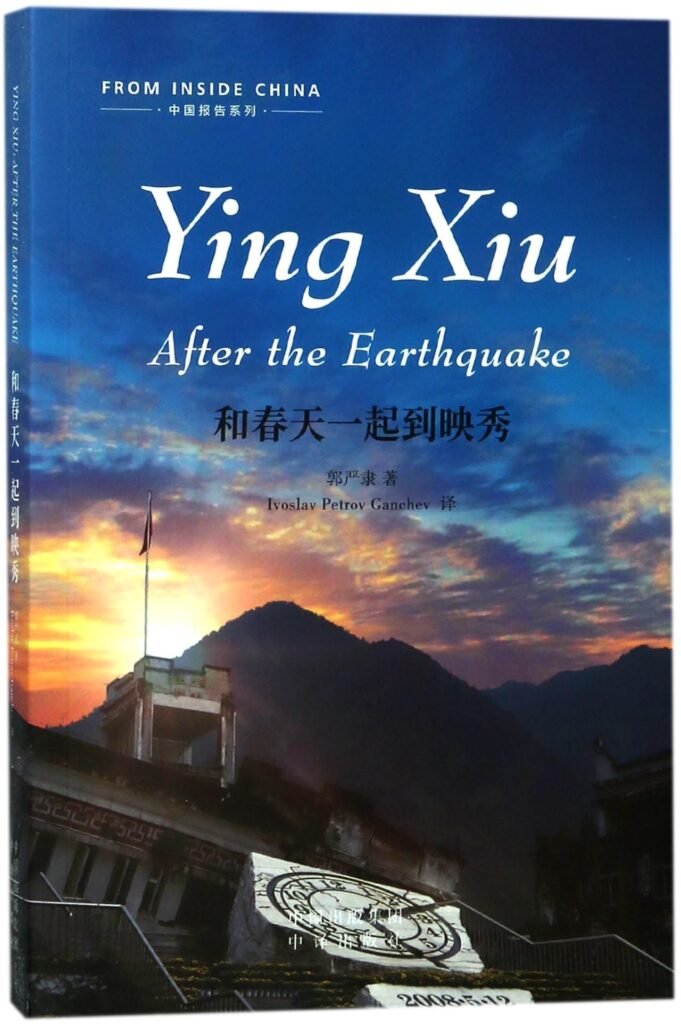
Ying Xiu: After The Earthquake
Published 2018 by China Publishing Group (PRC). Available online worldwide on Amazon.
Description: There are two springs in Yingxiu, one on the buds of white jasmine, and another in people’s hearts. On May 12, 2008, at 2:28pm, the Wenchuan Earthquake struck Sichuan province and caused unprecedented damage to the entire region, turning the town of Yingxiu into rubble. The city of Dongguan was destined to shape the history of Yingxiu. One town in the north west mountainous areas of Sichuan, and another one in the southern vast grasslands of Guangdong were brought together to create a shared destiny for their peoples in a touching story of sincere, brotherly love. On January 31 2011, two springs befell this blessed land. This book tells the story of how reconstruction staff overcame numerous obstacles, waging a battle against time and space. It explains the factors which brought relief to the families whose members fell victims to the Wenchuan earthquake and tells the story of Yingxiu’s restoration.







